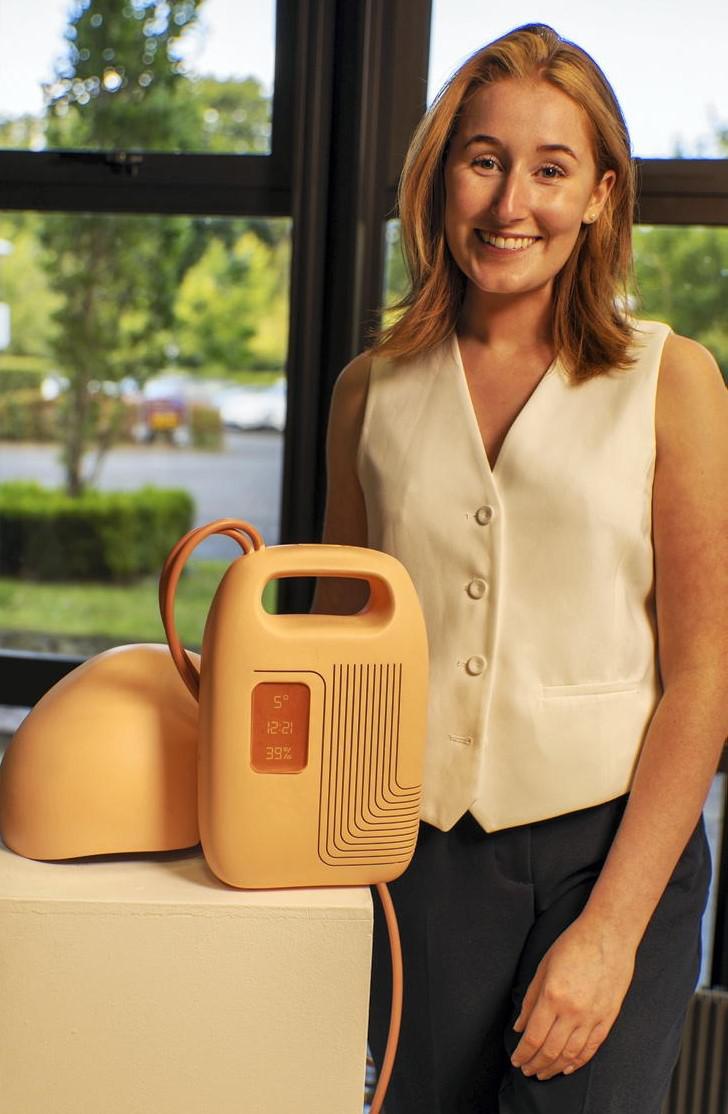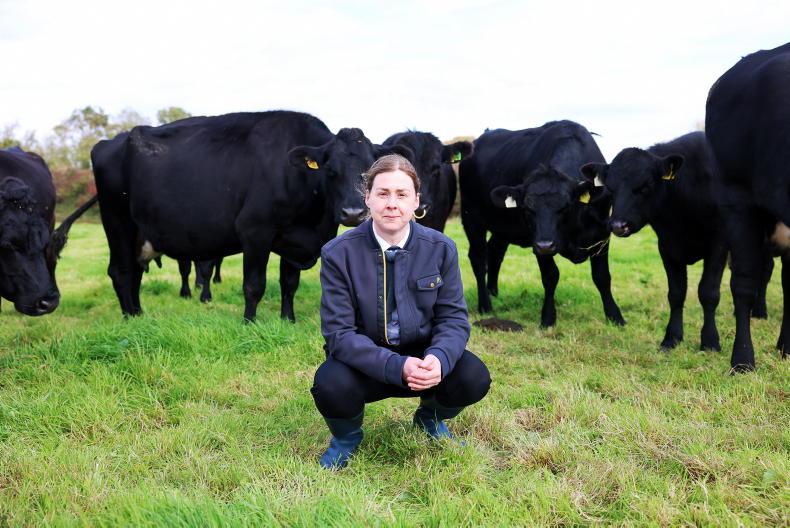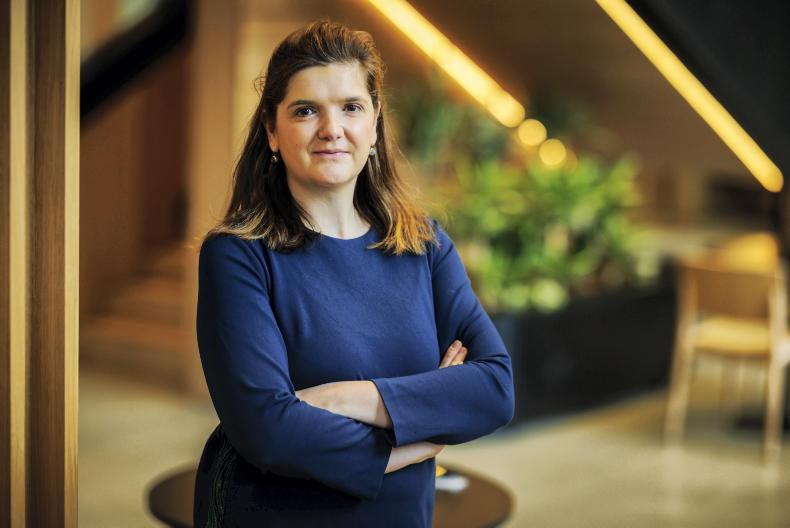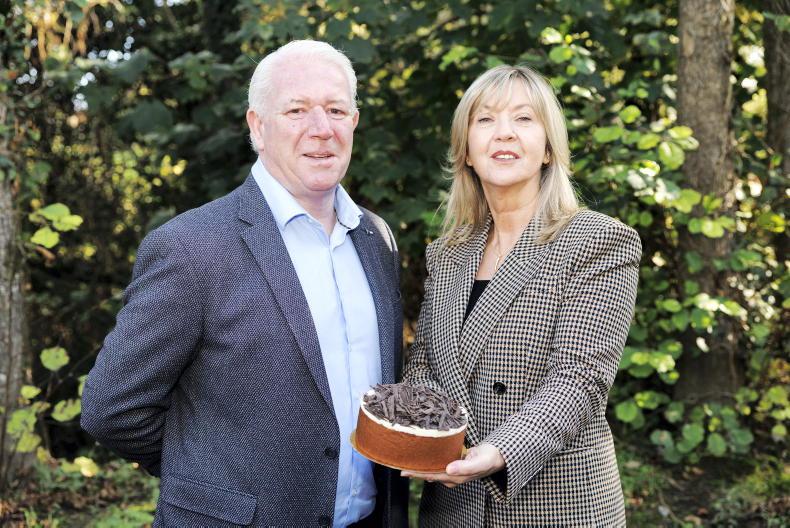There were nearly 2,000 people across the globe that entered the James Dyson Awards but it was a graphic designer from an organic beef farm in Pallasgreen, Co Limerick who took the top prize in the medical category for an innovative product called Athena.
Olivia Humprey (24) built an affordable and portable device for chemotherapy patients that uses scalp-cooling properties to prevent hair loss.
Somewhere between 65% and 99% of patients going through chemotherapy will be affected by chemo-induced hair loss. After witnessing her mother going through cancer treatment, Olivia wanted to help find a solution.
After leaving secondary school, Olivia decided to go to art college. Starting at Limerick School of Art and Design, she wanted to do product design and went into sculptures. After a while, she transferred to a product design course at the University of Limerick after realising she wanted a broader course.
“I liked doing my drawing and art, but learning about electro-technology and circuits was fascinating. During the four-year course, I had a small business on the side creating paintings. It was great to be in college learning about technology and product design while balancing my creative side,” she says.
There were others in her course who previously won categories in the James Dyson Award so it was on her radar. As part of her final year project, she had to develop and make a prototype, which inspired her entry.
“When I started, I didn’t know what to do. I had a million ideas, and I couldn’t get one to work,” she says.
At home, Olivia’s mother Vicky was looking at her struggling to decide on what project to develop. They spoke about finding a solution to hair loss as Vicky was going through cancer treatment.
“It was a conversation we had at the kitchen table because developing the product is all about solving a problem and meeting a person’s needs. I was trying to do something with nature, and it wasn’t resonating. Mum was the one who inspired the whole thing through her personal experience. We had many conversations and I realised how difficult the situation was,” says Olivia.
The hair-loss prevention techniques currently on the market commonly use scalp cooling, a method that involves applying ice-cold temperatures to the scalp before, during, and after chemotherapy.
It mitigates hair loss by shrinking blood vessels and limiting blood flow to the scalp. After chemotherapy, cooling can also help hair grow back faster and stronger.
However, it can be painful for patients. and the availability of scalp cooling is limited due to its high costs. The Minister for Health estimates the total cost of installing a scalp cooling machine in hospitals at €216,000, with additional costs needed for staffing as it requires additional help to operate the equipment.
There are cheaper, manual cooling alternatives available, yet these are less powerful, and they don’t provide long-lasting effects.
Not all hospitals offer scalp cooling for patients. In Ireland, it is only available in eight out of the country’s 86 hospitals.
Developing a solution

Olivia Humphrey with Athena.
Olivia’s product Athena was developed to tackle these issues after witnessing the impact of chemotherapy-induced hair loss had on her mother. She was inspired to reimagine hair-loss prevention technology and started working on the prototypes in the sheds on her family’s organic beef farm.
The battery-powered device weighs around 3kg, and consists of a carry case and a cooling headpiece, that fits different head shapes. This enables people to spend less time in hospital on a chemotherapy infusion day.
“It works by using low-cost thermoelectric semiconductors called Peltiers, and these cool a tank of water, which circulates the cold water around the head with the smartly designed headpiece,” says Olivia.
The name Athena is from the powerful Greek goddess of wisdom and battle strategy. It is a symbol of resilience, which is a quality often seen in those living with an illness as serious as cancer.
The estimated cost for Athena is €1,000, according to Olivia, which is significantly less than the manual alternatives that are available, which start at around €20,000.
It has the potential to make hair-loss prevention more accessible and affordable for both patients and healthcare providers. Olivia’s ideal scenario would involve partnering with hospitals and charities to offer Athena through a rental or loan scheme.
Olivia says, “The project is now at a concept stage with extensive research and development required to take it to the next level.
“I’m also now working for the Galway-based company, Luminate Medical which is working on developing a hair loss product.
“If I were to refine Athena on my own, it could take me five to 10 years.
“Everything I’m doing is being fed into them, and they have a working prototype. I’m helping them get it to clinical trial as quickly as possible. Ultimately, we want people to benefit from the technology and make it available,” she says.
As the medical winner of the Global James Dyson Award, Olivia received a prize of €38,000.
“It was a complete surprise, they told me I had a technical interview coming up, so I had loads of notes but it turned out I was awarded the winner,” she says.
Read more
The art of craft butchery is in safe hands
Climbing the ladder during the early stages of your careers
There were nearly 2,000 people across the globe that entered the James Dyson Awards but it was a graphic designer from an organic beef farm in Pallasgreen, Co Limerick who took the top prize in the medical category for an innovative product called Athena.
Olivia Humprey (24) built an affordable and portable device for chemotherapy patients that uses scalp-cooling properties to prevent hair loss.
Somewhere between 65% and 99% of patients going through chemotherapy will be affected by chemo-induced hair loss. After witnessing her mother going through cancer treatment, Olivia wanted to help find a solution.
After leaving secondary school, Olivia decided to go to art college. Starting at Limerick School of Art and Design, she wanted to do product design and went into sculptures. After a while, she transferred to a product design course at the University of Limerick after realising she wanted a broader course.
“I liked doing my drawing and art, but learning about electro-technology and circuits was fascinating. During the four-year course, I had a small business on the side creating paintings. It was great to be in college learning about technology and product design while balancing my creative side,” she says.
There were others in her course who previously won categories in the James Dyson Award so it was on her radar. As part of her final year project, she had to develop and make a prototype, which inspired her entry.
“When I started, I didn’t know what to do. I had a million ideas, and I couldn’t get one to work,” she says.
At home, Olivia’s mother Vicky was looking at her struggling to decide on what project to develop. They spoke about finding a solution to hair loss as Vicky was going through cancer treatment.
“It was a conversation we had at the kitchen table because developing the product is all about solving a problem and meeting a person’s needs. I was trying to do something with nature, and it wasn’t resonating. Mum was the one who inspired the whole thing through her personal experience. We had many conversations and I realised how difficult the situation was,” says Olivia.
The hair-loss prevention techniques currently on the market commonly use scalp cooling, a method that involves applying ice-cold temperatures to the scalp before, during, and after chemotherapy.
It mitigates hair loss by shrinking blood vessels and limiting blood flow to the scalp. After chemotherapy, cooling can also help hair grow back faster and stronger.
However, it can be painful for patients. and the availability of scalp cooling is limited due to its high costs. The Minister for Health estimates the total cost of installing a scalp cooling machine in hospitals at €216,000, with additional costs needed for staffing as it requires additional help to operate the equipment.
There are cheaper, manual cooling alternatives available, yet these are less powerful, and they don’t provide long-lasting effects.
Not all hospitals offer scalp cooling for patients. In Ireland, it is only available in eight out of the country’s 86 hospitals.
Developing a solution

Olivia Humphrey with Athena.
Olivia’s product Athena was developed to tackle these issues after witnessing the impact of chemotherapy-induced hair loss had on her mother. She was inspired to reimagine hair-loss prevention technology and started working on the prototypes in the sheds on her family’s organic beef farm.
The battery-powered device weighs around 3kg, and consists of a carry case and a cooling headpiece, that fits different head shapes. This enables people to spend less time in hospital on a chemotherapy infusion day.
“It works by using low-cost thermoelectric semiconductors called Peltiers, and these cool a tank of water, which circulates the cold water around the head with the smartly designed headpiece,” says Olivia.
The name Athena is from the powerful Greek goddess of wisdom and battle strategy. It is a symbol of resilience, which is a quality often seen in those living with an illness as serious as cancer.
The estimated cost for Athena is €1,000, according to Olivia, which is significantly less than the manual alternatives that are available, which start at around €20,000.
It has the potential to make hair-loss prevention more accessible and affordable for both patients and healthcare providers. Olivia’s ideal scenario would involve partnering with hospitals and charities to offer Athena through a rental or loan scheme.
Olivia says, “The project is now at a concept stage with extensive research and development required to take it to the next level.
“I’m also now working for the Galway-based company, Luminate Medical which is working on developing a hair loss product.
“If I were to refine Athena on my own, it could take me five to 10 years.
“Everything I’m doing is being fed into them, and they have a working prototype. I’m helping them get it to clinical trial as quickly as possible. Ultimately, we want people to benefit from the technology and make it available,” she says.
As the medical winner of the Global James Dyson Award, Olivia received a prize of €38,000.
“It was a complete surprise, they told me I had a technical interview coming up, so I had loads of notes but it turned out I was awarded the winner,” she says.
Read more
The art of craft butchery is in safe hands
Climbing the ladder during the early stages of your careers










SHARING OPTIONS